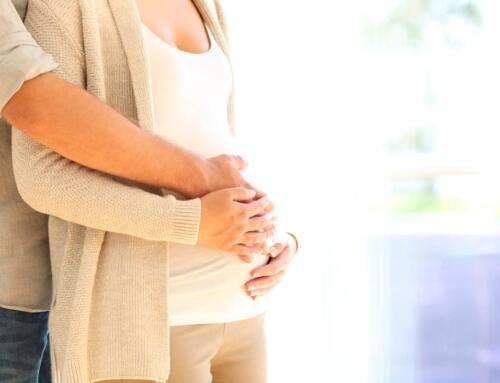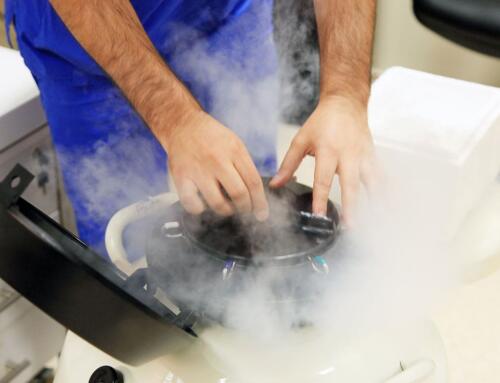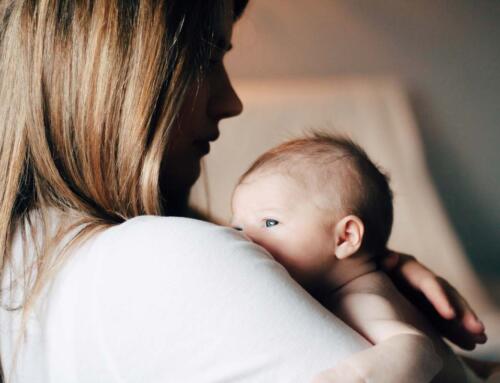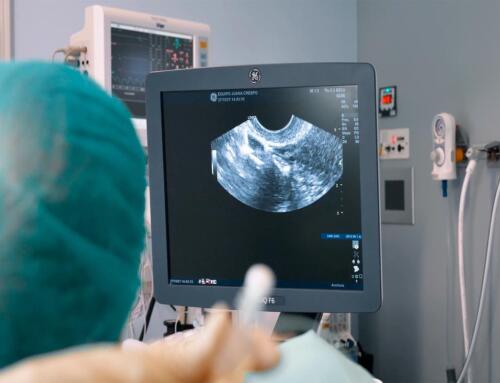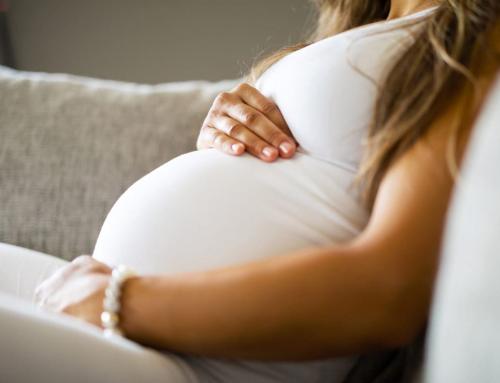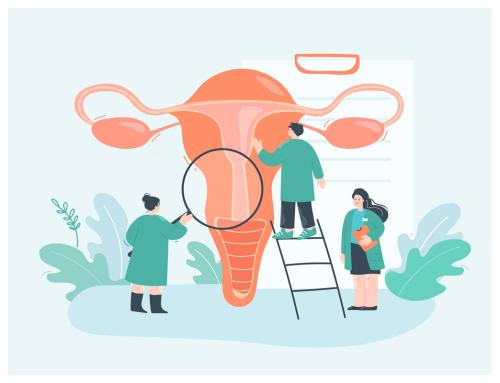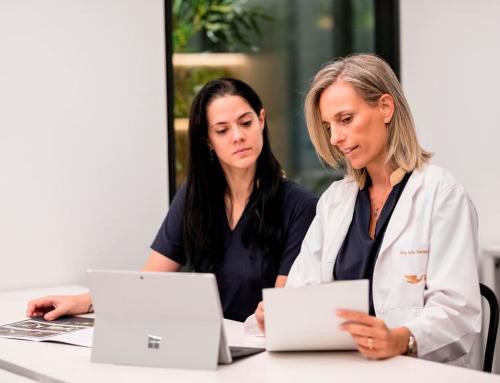Endometriosis is a common pathology (affecting 15% of women of childbearing age worldwide) whose high incidence makes it the first gynaecological pathology by frequency.
There are more and more studies on how endometriosis affects fertility.
It is no coincidence: many of the patients under 35 years of age who resort to assisted reproduction treatments with egg donation in clinics such as ours have been diagnosed with this disease.
How does endometriosis affect fertility?
Endometriosis is the presence of endometrium outside the uterine cavity.
This disease manifests itself when the endometrial tissue that lines the inside of the uterus appears outside the uterus, implanting itself in the ovaries, in the tubes, behind the uterus, in the uterine ligaments, in the intestines and even in the bladder, forming cysts that fill with blood. When the endometrial tissue penetrates the muscular layer of the uterus, it is called adenomyosis.
Some of the common symptoms of endometriosis are severe menstrual pain, heavy menstrual periods, bleeding between periods, pain before, during and/or after sexual intercourse, painful urination, fatigue or continued tiredness.
Apart from affecting the quality of life of women who suffer from it, endometriosis is a progressive disease, which worsens over time and can compromise key physiological events for fertility.
Why does endometriosis impair fertility?
A way in which endometriosis affects fertility is that it causes adhesions that hinder tubal function.
In the most severe cases, the distortion of the anatomy of the genitals due to inflammation and fibrosis alters the functionality of these organs.
On the other hand, there are mechanisms related to this disease that hinders embryo implantation or the development and quality of the eggs due to the presence of pro-inflammatory molecules.
In the early stages of endometriosis, the presence of a peritoneal inflammatory reaction can also compromise other key events in achieving pregnancy, such as ovulation, embryo development and implantation.
In addition, women with endometriosis often have very irregular menses, making it difficult to control their ovulation or fertile days to achieve pregnancy in a “natural” way.
Can I get pregnant if I have endometriosis?
If you have endometriosis, your chances of getting pregnant are likely to decrease.
When faced with the symptoms of this disease, it is important to visit your doctor or a specialized clinic to be informed about the options available to you.
Generally, in the early stages of the disease, the recommendation is not to delay pregnancy too long.
Treatments
Depending on the severity of your situation, the presence of pain, your age and other factors affecting your fertility, doctors may advise you:
- Doing In Vitro Fertilization.
- In Vitro Fertilization with donor eggs (oocyte donation).
Sometimes, these treatments are accompanied by a previous surgery.
The latter is recommended when the tubes are dilated (hydrosalpinx), when there are very large endometriomas/endometrial cysts or when access to the ovaries for follicular puncture and oocyte retrieval is limited.
Women with endometriosis who want to delay or plan their fertility can also resort to egg vitrification.
What is egg vitrification?
Egg vitrification is a technique that consists of obtaining the eggs/sperm and preserving them at very low temperatures for an indefinite period of time.
The eggs are extracted thanks to the aspiration of follicular fluid.
Once outside, this fluid is observed with a microscope to find the eggs that are mature and show positive features. These selected oocytes are frozen by a process called vitrification, they are subjected to ultra-rapid freezing in high-security containers with liquid nitrogen, where they are preserved at – 196 °C.
In this controlled environment, eggs can maintain their reproductive capacity for years.
Cryopreservation is used, among other things, for fertility planning in women who wish to delay childbearing or who want to preserve their oocytes due to medical issues, such as some surgeries or cancer treatments, or diseases that may compromise pregnancy, such as severe endometriosis.
In this way, it is possible to plan assisted reproduction treatments and IVF cycles in the future.
Endometriosis and fertility planning
Egg vitrification is an alternative for women with endometriosis that would like to become pregnant with their own eggs, even if the severity of their disease progresses.
It should be noted that this pathology, which appears and develops throughout a woman’s fertile life, tends to worsen over time.
The relationship between endometriosis and decreased ovarian quality is due to the fact that the endometriotic cysts that grow in the ovary destroy part of the oocyte endowment, reducing the ovarian reserve.
In the same way, if it is necessary to perform surgery to remove these cysts, the decrease in ovarian reserve can also be accentuated.
Extracting eggs when the endometriosis is not yet very advanced in order to vitrify and store them allows many young patients with this disease not to lose the opportunity to become mothers when the time comes.
The vitrification of eggs is complex, it must be done in authorized centers/clinics and requires the use of state-of-the-art technology by specialized professionals, as is the case in Juana Crespo clinic.
Learn more about this process on our website. And if you have any questions, do not hesitate to ask us.



